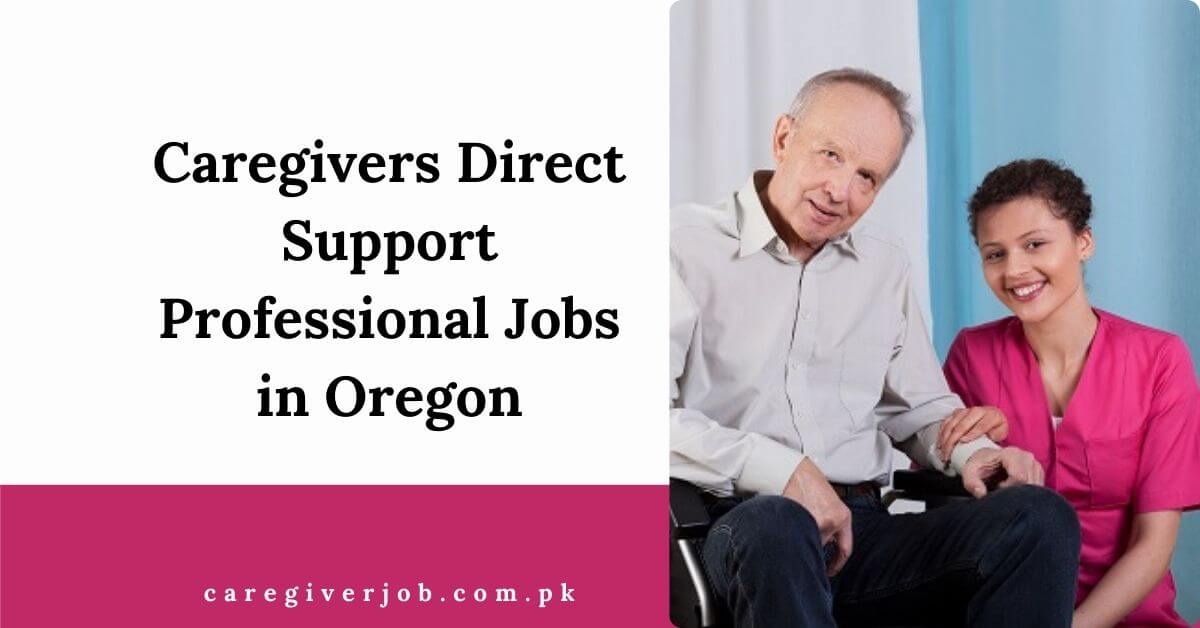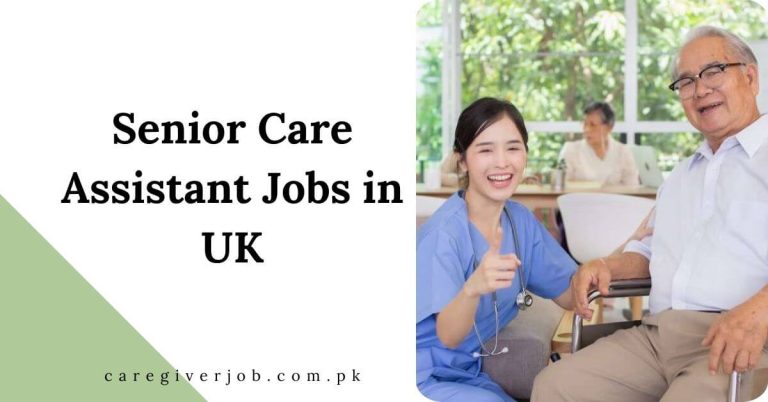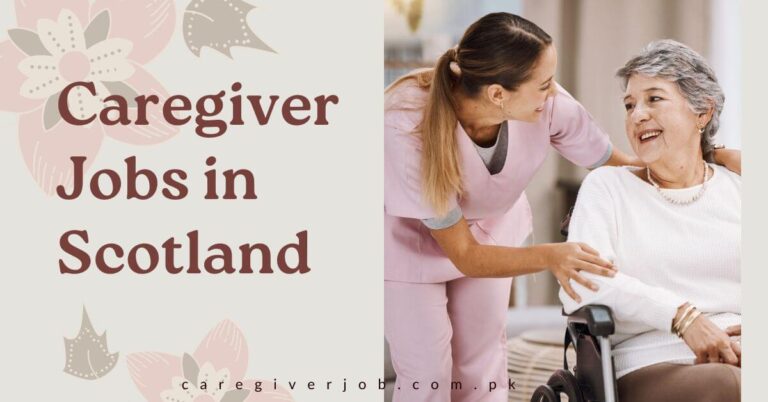Caregivers Direct Support Professional Jobs in Oregon 2025
The Direct Support Professional (DSP) role is primarily responsible for the provision of training and/or assistance to the individuals we support in the areas of hygiene, nutrition, housekeeping, behavioral management, safety, healthcare, and other daily activities, both within the home and in the community. Additionally, the DSP is responsible for the maintenance of the home/property in a safe and sanitary manner.
Check Also: Certified Caregivers Jobs in USA – Apply Now
Key Points:
- Job Title: Caregivers Direct Support Professional Jobs in Oregon
- Job Type: Full-time
- Company: Supported Independence Services of Oregon
- Salary: Up to $16 an hour
- Location: Eugene, OR
- Country: United States
Essential Position Functions:
- Bathing, tooth cleansing, shaving, hair care, nail care, and other such hygiene practices
- Toileting, dressing, nutritional management, physical management (including prosthetic devices), behavioral management, safety, maintenance, money management, recreation, health care, and community integration.
- Maintain medication records, including MAR forms, TAR forms, and med count sheets, and administer medications. This encompasses all aspects of medication administration systems.
- Complete the medical tasks that have been delegated or trained by the registered nurse, which may include but are not limited to medication administration via G-tube, diabetic procedures, and other medical responsibilities as assigned. As required, finalize the pertinent documentation.
- Maintain the necessary observation skills to identify behavioral/health changes or needs and promptly report them to the program manager, administrative director, clinical director, or registered nurse. Provide support to individuals.
- Record pertinent information regarding the individual’s health and well-being. Assisting health professionals and the program in comprehending the history of the individual, as well as meeting current and prospective requirements.
- Perform rudimentary repairs and general interior and exterior housekeeping, such as, but not limited to, laundry, vacuuming, grounds maintenance, meal preparation, food handling and storage, maintenance of prosthetic and positioning equipment, bathroom cleaning, light painting, and doorknob replacement.
- Attend mandatory training and participate in meetings as assigned.
- Ensure that the environment is secure. Inform the program manager of any apprehensions. Engage in safety inspections and emergency evacuations. Adhere to the appropriate nutrition management, physical management, and behavioral intervention techniques and principles as instructed.
- Adhere to the policies, procedures, and guidelines that have been established.
- Complete any additional responsibilities that are assigned.
Benefits of Caregivers Direct Support Professional Jobs in Oregon:
- Meaningful Work: Direct Support Professionals (DSPs) are essential in enhancing the quality of life for individuals with disabilities, which is why their work is both personally fulfilling and rewarding.
- Consistent Income: DSP positions frequently offer the potential for overtime or additional schedules to augment earnings.
- Comprehensive Benefits: Numerous positions offer a variety of benefits, including health insurance, dental and vision coverage, retirement plans (such as 401(k)), and life insurance.
- Flexible Schedules: DSP positions frequently provide a range of schedules, such as full-time, part-time, and flexible hours, to accommodate individual requirements.
- Paid Time Off (PTO): Employers frequently offer vacation time, medical leave, and holiday pay to promote a healthy work-life balance.
- Training and Certification: In order to facilitate the development of DSPs’ abilities and advance in their professions, numerous employers provide on-the-job training, CPR certification, and specialized courses.
- Job Security: The consistent demand for qualified individuals and long-term job security are guaranteed by the increasing demand for caregivers and support professionals.
- Advancement Opportunities: DSPs have the potential to progress to supervisory roles, case management, or even specialized positions in social work or healthcare as they gain experience.
- Diverse Work Environments: DSPs are capable of working in a variety of settings, including group homes, private residences, day programs, and community-based settings, which allow them to accommodate a wide range of preferences.
- Personal Development: The intimate interaction with individuals with disabilities cultivates the development of problem-solving skills, empathy, and patience, which is beneficial for both personal and professional growth.
- Positive Work Environment: A supportive environment that emphasizes collaboration and care is a common feature of numerous DSP positions.
- Mileage Reimbursement: In order to mitigate transportation expenses, numerous employers offer mileage reimbursement to DSPs who commute between customers or work sites.
- In-Demand Role: DSPs are a critical component of the workforce, ensuring that there are long-term career opportunities as the population ages and the demand for personalized care increases.
- Diverse Client Interaction: The opportunity to work with clients of varying abilities and needs provides a distinctive and enriching experience that enhances one’s interpersonal and caregiving abilities.
- Employer-Sponsored Benefits: In order to provide additional support to DSPs, certain employers provide wellness programs, tuition reimbursement, or employee assistance programs.
Working Conditions:
They function in a domestic environment, staffed around the clock, every day of the week. The length of a shift and the commencement time of a schedule may fluctuate. The following is a breakdown of the shifts: Awake Noc Shift 2200-0600 (10 pm-6 am), Swing Shift 1400-2200 (2 pm-10 pm), and Day Shift 0600-1400 (6 am-2 pm). Additionally, we offer a flex shift that commences at varying times based on the client’s requirements and the residence (e.g., 1200-2000).
Authority:
They identify and inform supervisors about any distinct problems that emerge, while also bringing any medical or behavioral issues to their notice. Decisions are typically situational and may affect the health and safety of the individuals they support, as well as their companions, employees, and/or community members.
Basic health decisions may encompass the identification and initiation of action in the event of illness and/or injury, as well as the administration of PRN medication. Evaluation of the necessity for assistance, behavior intervention, environmental modification, evacuation, activation of safety locks and/or alarms, defensive driving techniques, increased supervision, and so forth are all examples of basic safety decisions.
Contacts:
In order to exchange medical and/or other client-related information on a daily or as-needed basis, the individual will engage in communication with the following individuals: Physicians, Consultants, Parents/Guardians, Public Persons, Program Manager, Service Coordinators, Administrative Director, and Clinical Director.
Position Requirements:
- Minimum age requirement: 18 years High school diploma or equivalent
- Possess the ability to successfully complete a background check.
- Proficient and legible reading and writing in English are required. Oregon Intervention System Certification is available upon employment.
- certification in CPR/First Aid (provided upon employment)
- Medication Administration (offered upon employment)
- Frequent daily hauling of up to 50 pounds
- It is necessary to be capable of engaging and maintaining (OIS) approved PPIs for a maximum of one hour (training will be provided upon employment).
- Frequent daily squatting, bending, and stooping Daily interaction with individuals who exhibit potentially argumentative, aggressive, destructive, harmful, offensive, and dangerous behaviors to themselves or others
- Daily exposure to cleaning agents that are both domestic and occasionally industrial strength
- Exposure to a diverse array of work environments, including those in the home and community
- Occasionally engage in water activities with the individuals as assigned. Occasional exposure to inclement weather
- Must be capable of working overtime as necessary to ensure that the necessary personnel and support are provided for individuals, which is available 24 hours a day, seven days a week.
- The daily transportation of individuals who use public transportation, buses, wheelchair-accessible vehicles, passenger vans, minivans, and/or standard-sized automobiles is frequent. A driver’s license is not mandatory.
- Consistent interaction with the public and other agency personnel
For More Info:
Email Your CV, and We’ll Find the Best Pathway For you: info@caregiverjob.com.pk
Frequently Asked Questions:
-
What does a (DSP) caregiver do in Oregon?
Direct Support Professionals provide care and assistance to individuals with disabilities or special needs. Their duties include helping with daily activities, providing emotional support, implementing care plans, and promoting independence.
-
What qualifications are required for DSP caregiver jobs in Oregon?
A high school diploma or equivalent is usually required. Some employers may prefer or require CPR/First Aid certification or specialized training in caregiving or disability services.
-
Is prior experience necessary for DSP caregiver jobs?
Experience is preferred but not always required. Many organizations provide on-the-job training for new hires.







